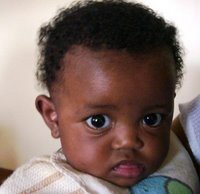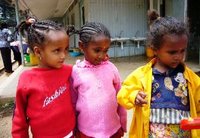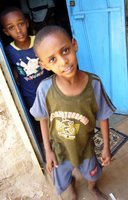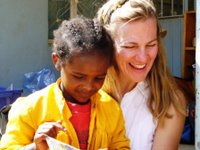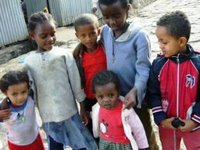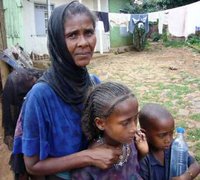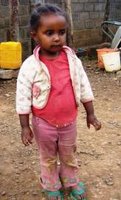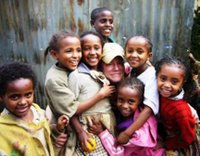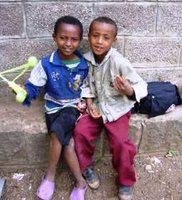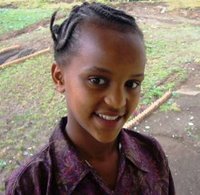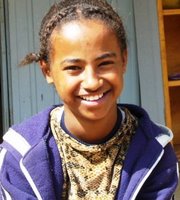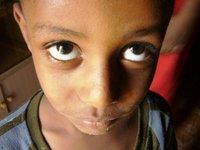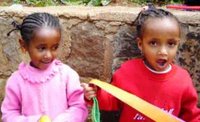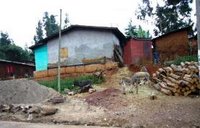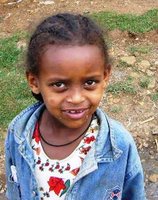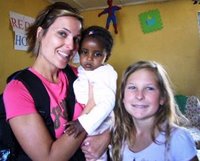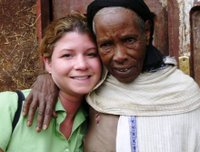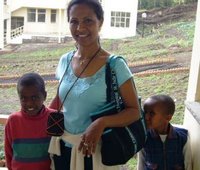 “The poor and needy search for water, but there is none; their tongues are parched with thirst. But I the Lord will answer them; I, the God of Israel, will not forsake them. I will make rivers flow on barren heights, and spring within the valleys. I will turn the desert into pools of water, and parched ground into springs. I will put in the desert the cedar and the acacia, the myrtle and the olive. I will set pines in the wasteland, the fir and the cypress together, so that people may see and know, may consider and understand that the hand of the Lord has done this that the Holy One of Israel has created it ” IS 41:17-20.
“The poor and needy search for water, but there is none; their tongues are parched with thirst. But I the Lord will answer them; I, the God of Israel, will not forsake them. I will make rivers flow on barren heights, and spring within the valleys. I will turn the desert into pools of water, and parched ground into springs. I will put in the desert the cedar and the acacia, the myrtle and the olive. I will set pines in the wasteland, the fir and the cypress together, so that people may see and know, may consider and understand that the hand of the Lord has done this that the Holy One of Israel has created it ” IS 41:17-20. When my family and I were fleeing on foot from Ethiopia to Sudan during a very hot and burning summer in 1985, we were desperately thirsty for water. There seemed to be no hope, and the only thing we had left to do was find the shade and sit there until we die. Suddenly, I spotted flowing water in a shallow spot in the middle of an absolutely flat and dark earth. One of my roommates, Liz to whom I had shared this miracle story, reminded me of Isaiah 41:17-20, and said, “Almaz, I think this is about your' story!” It was exactly what the verses promised: He turned the desert into pools of water for us. We drank to our satisfaction, and then we continued our journey where we also found food the next day. In Ethiopia, I see the promises of God, “…I, the God of Israel, will not forsake them” to be for the many precious Ethiopian orphans of the present (Is 18).
When I am in Ethiopia, in the midst of witnessing deep-rooted socioeconomic needs, I am often encouraged by its culture that is rooted in hope. During this short term mission with Visiting Orphans, we visited the poorest of the poorest homes of some of the children who were beneficiaries of one of the programs we served. Those families live in socioeconomic destitution that was heartbreaking to witness. I wonder how the people will make it one more week, let alone months and years to raise their little ones. But then, I see how the Ethiopians have a culture that is rooted in hope that keeps them going. Unlike many other African nations, the gospel spread throughout the country during the early 4th century. The communist regime tried to destroy it from 1950 to 1991 and persecuted thousands of Christians, but it could not destroy Christianity in Ethiopia.
The majority of Ethiopians have nothing, but the children and women seem to have grace, sincere smiles, and resiliency.
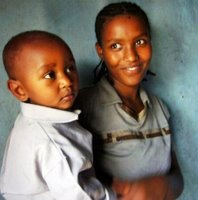
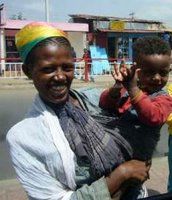
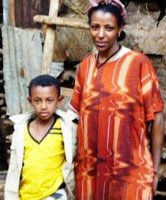 I wonder if the people, even the illiterate ones know the promises of God like those in Isaiah 41:17-20? I think somehow in the midst of their struggle, they know the promises of God: that He will never forsake them.
I wonder if the people, even the illiterate ones know the promises of God like those in Isaiah 41:17-20? I think somehow in the midst of their struggle, they know the promises of God: that He will never forsake them. This grandmother, whom we visited praised and praised God for our visit and she proceeded to say with an urging tone:
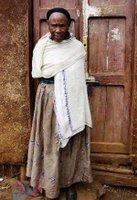 “Bekachew, “haderia, haderia and haderia, indetresachew yelejejachey, lejejachye:” (Please promise to continue help my grandchildren, promise and promise me to never forget them). This was deeply troubling to hear as we were not prepared to received such real but challenging responsibility.
“Bekachew, “haderia, haderia and haderia, indetresachew yelejejachey, lejejachye:” (Please promise to continue help my grandchildren, promise and promise me to never forget them). This was deeply troubling to hear as we were not prepared to received such real but challenging responsibility. 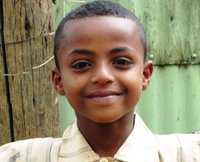
Having found a home in America, I thought, I would never have to witness children going through the same experience I went through growing up in Ethiopia. Twenty years later, I am finding myself face-to-face with people living in the same situation I once faced. Children continue to struggle to raise themselves after losing their parent(s) at a young age to treatable infectious diseases or to HIV/AIDS epidemic. Slowly I am learning that God saved me physically and spiritually and brought me this far, so that I may choose to be part of His story of rescuing Ethiopian children.
God protects, blesses, and then calls us to become part of His plan of rescuing and changing lives. We are all rescued from one thing or another. In Eph 2:1-3 says, “As for you, you were dead in your transgressions and sins, in which you used to live when you followed the ways of this world and of the ruler of the kingdom the air, the spirit who is now at work in those who are disobedient”. We may not have all been rescued from hunger, a dying thirst or a refugee life, but we were all rescued by God, so that we may “…live a life worthy of the calling [we] have received” (Ep 4:1).
In Ethiopia the major challenging task is not how to reach out to the people with the gospel, it is the need to share our resources, our money, time and emotions to listen to the many hurting orphans and the sick. During our mission with the team of truly generous people from Visiting Orphans, we were repeatedly presented with urgent needs. Each day there were financial needs ranging from money for treatment for a child with a face disfigured:
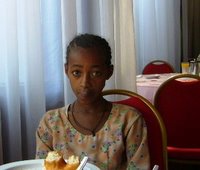 by Hemangioma, rental money for teenagers living in the city to attend school away from home, money to purchase books and dictionaries, money to expand orphanage homes, and the list goes. As we were presented with and witnessed endless critical needs, I felt a deep concern for the team that they might be burnt out by those demands.
by Hemangioma, rental money for teenagers living in the city to attend school away from home, money to purchase books and dictionaries, money to expand orphanage homes, and the list goes. As we were presented with and witnessed endless critical needs, I felt a deep concern for the team that they might be burnt out by those demands. A mission trip in Ethiopia is indeed more than sharing the gospel. On our trip to Lalibela, northern part of the country, one evening a group of four of us went to one of the houses near our hotel to share the gospel and pray with the family. As I translated the prayer to the family, the father said, “We already are Christians, you know.” It is true the majority of the people do already know the Christian faith, yet with tremendous opportunities to show and comfort the people with the love and story of Jesus. In Ethiopia, the task of sharing our resources, our money and emotions is of a greater urgency.
My American friends on this trip were able to realize the realities and the importance of responding to people with compassion. So, they gave and gave cheerfully, and met some of the pressing needs God put in their sensitive hearts and souls. I observed mini fundraiser moments each day to meet particular needs. It was humbling and a privilege to be part of this group with true compassion and courage to love and comfort people with their resources, talents of music, gift of prayers, listing ears, and warm kisses to all people they came in contact with.
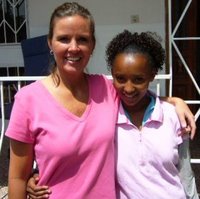
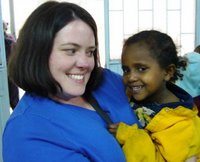
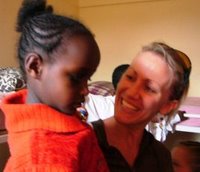 Visiting Orphans Team of May 2006, thank you. I have never been amongst so much love of the Lord and deep desire to pass on that love with sacrificial actions and spirit! Keep pouring out and encourage others to do the same!
Visiting Orphans Team of May 2006, thank you. I have never been amongst so much love of the Lord and deep desire to pass on that love with sacrificial actions and spirit! Keep pouring out and encourage others to do the same!

